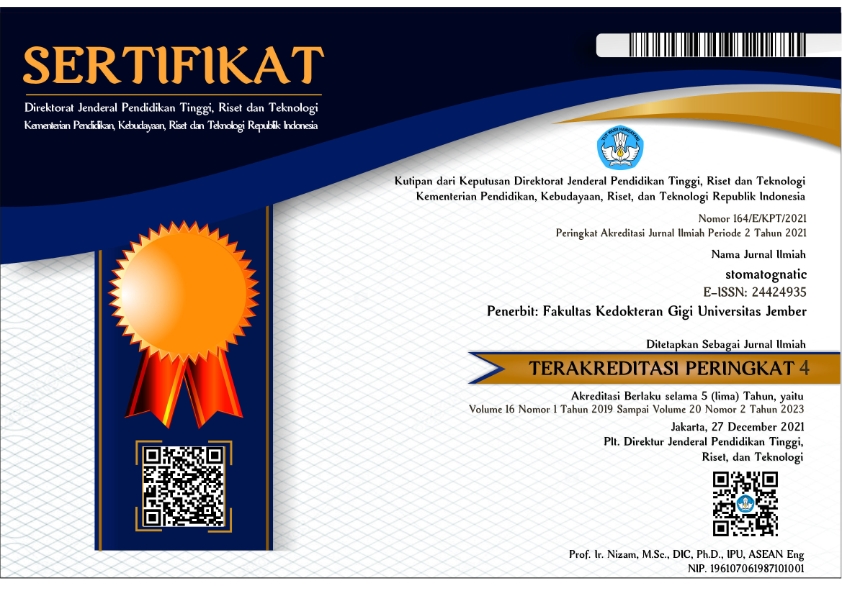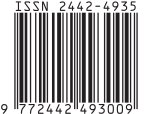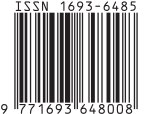Perubahan Histologis Jaringan Pulpa sebagai Respon terhadap Aplikasi Bahan Etsa
Abstract
Etching agents which are widely used in adhesive restoration aimed to increase retention of restorative materials, may act a chemical irritant that induce inflammation of dental pulp. Odontoblasts which are located at the periphery of the pulp, are the first cells encountered by irritant and infectious agents. This research aimed to elucidate the responses of dental pulp to 37% phosphoric acid and 19% EDTA application as an etching agents. Forty-five male Sprague Dawley rats were divided into 3 groups. Cavity preparation was made on the occlusal surface of maxillary first molar. 37% phosphoric acid, 19% EDTA and distilled water were applied on the surface of the cavity of the teeth in group I, II, and III subsequently. The cavities were filled by glass ionomer cements. The rats were sacrified at 1, 3, 5, 7 and 14 days after the treatment (n=3 for each day). The specimens were then processed histologically, stained with Hematoxylin Eosin. In intact teeth showed histological features of normal pulp tissue with no inflammation, odontoblast layer were aligned along the pulp chamber with normal morphology of cells. Severe inflammation was observed after 37% phosphoric acid application, odontoblast layer could not be observed in the areas below the cavity. Slight to moderate inflammation and disorganization of odontoblast layer were seen after application of 19% EDTA. In conclusion, application of 37% phosphoric acid induces severe inflammation and disorganization of pulp tissue than 19% EDTA.Downloads
Download data is not yet available.







